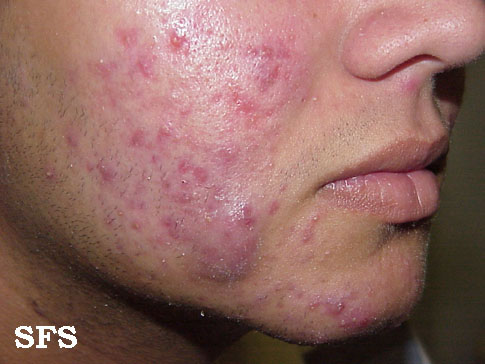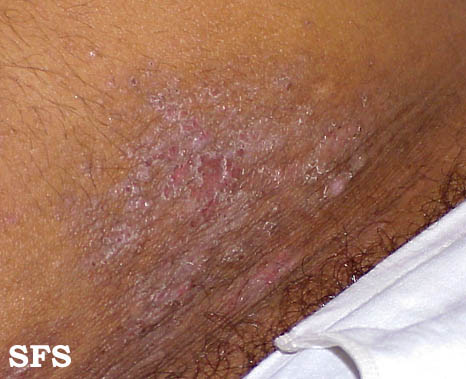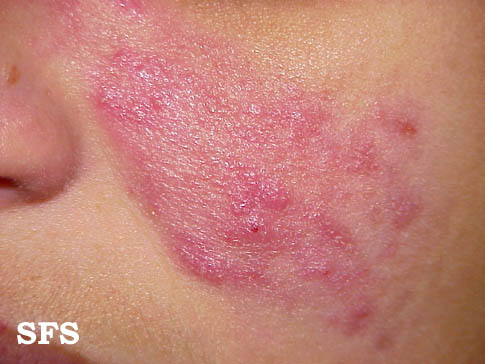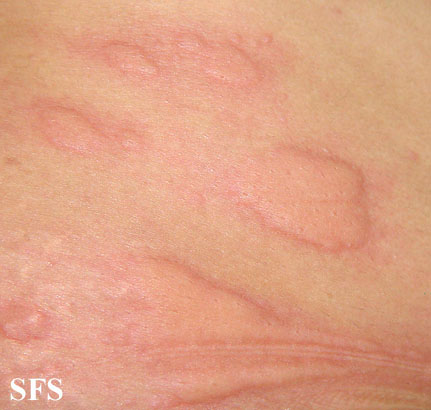Sensitive Skin – What Does It Mean and What Are The Causes?
What is sensitive skin?
Sensitive skin is a common term to describe skin that is hyper-reactive to any stimulus, whether from topical applications like creams, sun or artificial UV light sources or climatic changes such as a dry or cold environment. The skin may erupt with pimples, rashes, tiny blisters or become excessively dry and change color. Other symptoms are also common such as itching, burning, pain or a tingling and prickling sensation. Usually there is some redness of the affected skin. Although many of these symptoms are seen with generalized skin irritation and various skin diseases, the term ‘sensitive skin’ denotes a situation where the skin reacts to these stimuli quicker than it does in most people.
Meaning of Sensitive Skin
In sensitive skin, inflammation sets in with exposure to various stimuli even over a short duration or when the stimulus is very mild. Similarly long term exposure or an intense stimulus elicits a very severe reaction than would normally be expected. Although human skin is a waterproof barrier that is fairly impermeable to many different types of mechanical, chemical and electromagnetic stimuli, it does have a tolerance level. This is the point where the skin can withstand injury without becoming injured. Thereafter inflammation sets in and various changes in the skin can occur depending on the duration and intensity. This individual tolerance differs among people but there is a point where it arises too quickly or easily, hence the term ‘sensitive skin’.
Causes of Sensitive Skin
Some people have naturally sensitive skin which may be due to genetics or for unknown reasons. At other times the use of certain oral medication or even skin care products can induce skin sensitivity which may resolve upon discontinuing these products. Skin care procedures whether for aesthetic or medical reasons can also cause skin sensitivity. There are various skin conditions which can also cause skin sensitivity. This is a result of the normal skin function being compromised and the skin being hyper-reactive to stimuli as a result of the underlying disease process.
There are some skin conditions where sensitivity is more likely to be a feature. This includes :
- Acne vulgaris
- Atopic dermatitis
- Contact dermatitis
- Rosacea
- Urticaria
Sensitivity in Acne
Acne is a condition where the pores in the skin become blocked by oil plugs. These pores are the opening through which the sebaceous (oil) glands can secrete oil on to the surface of the skin. A certain type of bacteria, Propionibacterium acnes, then causes inflammation of the skin at the site of the blocked pore. The characteristic feature of acne is a pimple, whitehead or blackhead with varying degrees of skin redness at certain sites. Sensitivity is most commonly noticed on the face, chest and back since these areas are most affected by acne.

Sensitivity in Contact Dermatitis
Contact dermatitis is a condition marked by irritation of the skin upon exposure to certain substances. There are two types of contact dermatitis – irritant and allergic. In irritant contact dermatitis the substance directly irritates the skin thereby leading to inflammation. With allergic contact dermatitis the immune system overreacts to a substance (allergen) and tends to occur in certain people who are more susceptible to allergic conditions. Although allergic contact dermatitis has specific triggers, many other substances can also irritate the skin without causing an allergic reaction.

Sensitivity in Rosacea
Rosacea is a disorder where there is chronic inflammation of the skin with severe redness that occurs for unknown reasons. The redness is a feature of inflammation and is seen with many skin disorders. However, it is severe with rosacea. The exact reason why rosacea occurs is unclear but it appears to be due to a combination of factors include genetics, abnormal responses of the blood vessels in the skin, infections with bacteria and possibly infestations with certain parasites. Other factors like sunlight, alcohol, certain foods and changes in environmental temperature appear to worsen the condition but are not a cause.
Sensitivity in Urticaria
Urticaria (hives) is a condition where there is an abnormal allergic type of response that does not appear to always be related to an allergy to a specific substance. The cause as such of urticaria is therefore unknown. However, the disease mechanism is understood. Mast cells, a type of immune cell, releases large amounts of histamine thereby giving rise to inflammation. Acute cases may be triggered by certain infections, drugs, foods and insect stings but in most cases the trigger is never identified. Chronic urticaria may be related to autoimmune diseases although the causes in most cases are never identified. Skin is usually swollen, either in patches or streaks, often red and severely itchy.
Sensitive Skin Care
Since sensitive skin is not always linked to skin diseases, it is not simply a matter of treating the underlying condition. A person with sensitive skin often experiences a lifetime of sensitivity. In the event of a reaction, the following measures may be helpful :
- Washing the face with cold water.
- Using corticosteroid creams.
- Applying emollients especially when the skin is dry.
- Avoiding sunlight and use a sunscreen when necessary.
- Identifying irritants and avoiding exposure as far as possible.
Skin care products marked specifically for sensitive skin or as hypoallergenic may be preferable to avoid skin symptoms. However, the triggers for sensitive skin can be so diverse that it is difficult to conclusively identify substances that should be avoided. Sometimes skin products for sensitive skin can still irritate the skin in a few select individuals.







